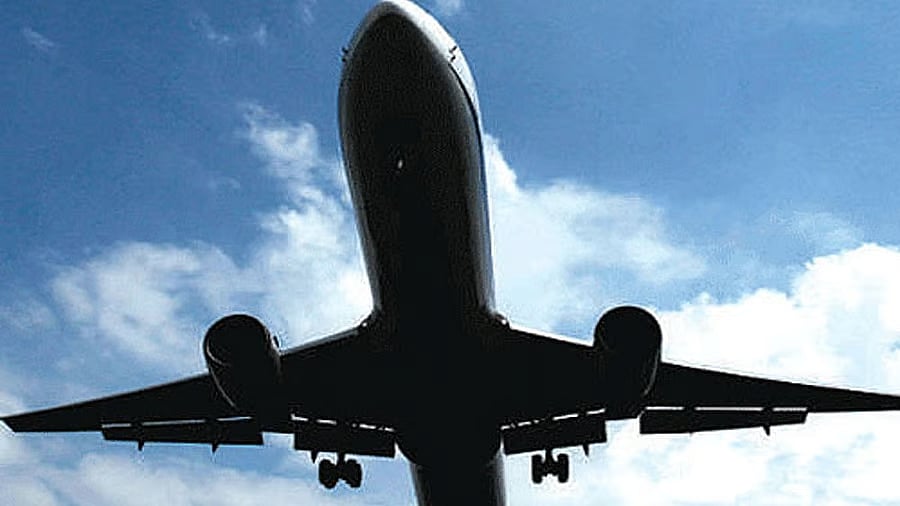
Representative image showing a plane.
Credit: Pixabay Photo
Mumbai: With over $12 billion already invested in air transport infrastructure, India is setting its sights on capturing a $4 billion share of the global Maintenance, Repair, and Overhaul (MRO) market by 2031, with the aim of establishing itself as a self-reliant aviation hub, according to industry leaders and experts.
India’s remarkable aviation trajectory—now the world’s third-largest domestic market, contributing 1.5 per cent to national GDP and supporting 7.7 million jobs. Over the last decade, more than 85 airports have been developed, with a roadmap to scale that number to 350 by 2047 under the government’s Viksit Bharat vision, they said at roundtable in the run up to India Passenger Terminal Show (IPTS) in Mumbai.
The conversation also showcased a suite of transformative technologies shaping airport experiences: biometric-based Digi Yatra, AI-powered digital twins, integrated multi-modal transport systems, and Net Zero, LEED-certified terminals were all cited as pivotal in creating globally benchmarked, passenger-centric infrastructure.
Reflecting on the evolving airport infrastructure development, Geetha Priya G, Senior Director – Infrastructure & Airports, JLL India, emphasised the need to build infrastructure that is resilient, adaptive and efficient.
“Greenfield airports offer the luxury of blank canvas while brownfield sites push us to rethink with constraints for unique, smart and adaptive design solutions. The future lies in modular construction, digital first terminal cores that centralize operations, passenger movement and energy management,” she said.
Reflecting on India’s growing aviation workforce demands, aviation industry expert Sumeet Suseelan, highlighted the urgent need to expand training capacity and reform policy.
“India is fast emerging as a global aviation talent hub, yet faces a significant manpower gap. While pilot eligibility has widened, training for cabin crew and ground staff remains limited to in-house airline programs. Opening this up to universities and private institutes is key to scaling talent and meeting both domestic and international demand. With inclusive frameworks and the right incentives, India can not only bridge its local workforce shortage but also position itself as a global training destination, strengthening our role in the international aviation ecosystem,” he said.
Nitin Sharma, DVP – Business Development, dormakaba, highlighted India’s leading role in redefining airport experiences: “India has transformed biometric travel with Digi Yatra, where your face becomes your boarding pass. We’re solving complex challenges—like group travel and one-click gate registration—while ensuring data privacy with automatic purging post-flight. Innovations like wider gates to prevent tailgating, now powered by AI and ML, were born from India’s unique needs and are setting global benchmarks. With under 10% of the population currently flying, we’re preparing for exponential growth by scaling smart, cost-efficient technologies. India’s rapid pace of innovation is not only enhancing domestic operations but creating airport solutions the world is now adopting.”